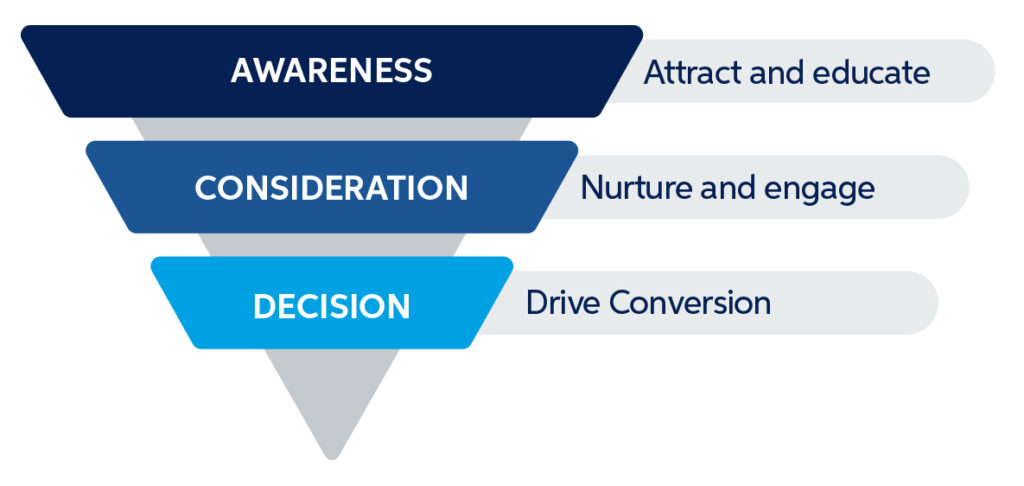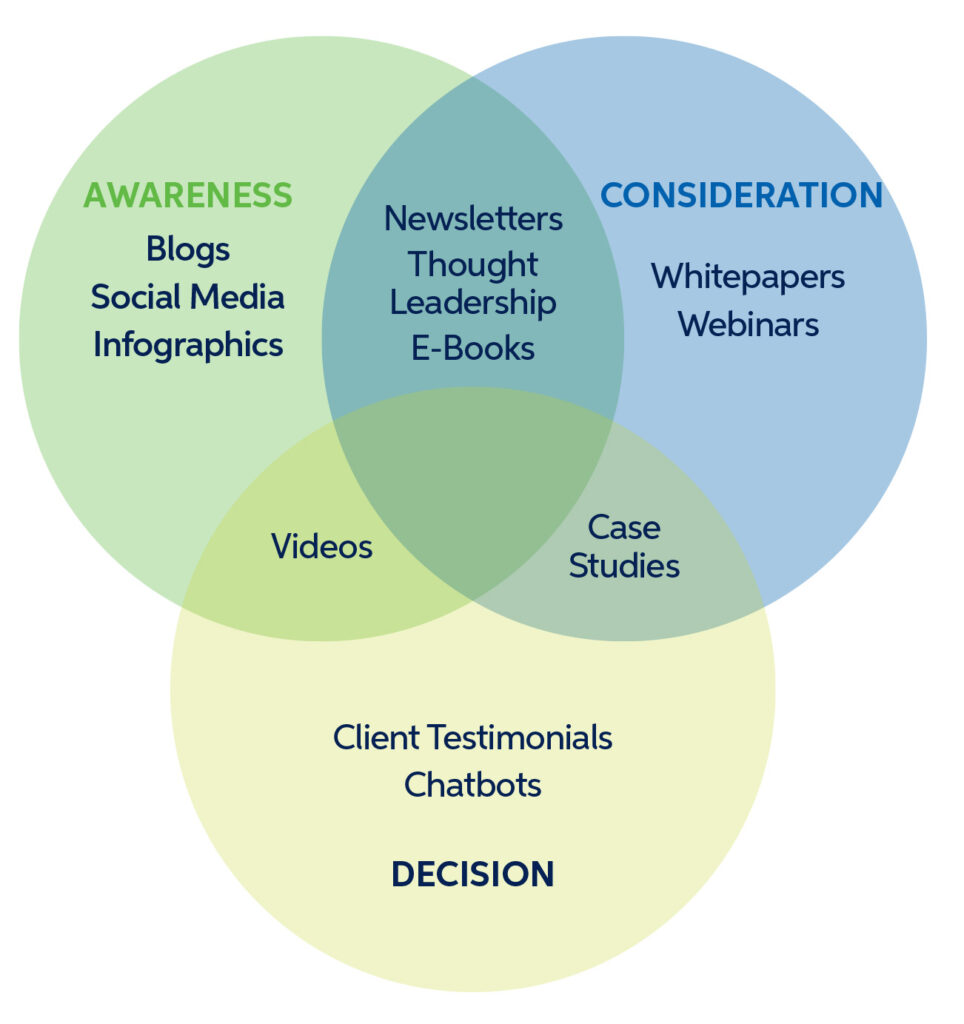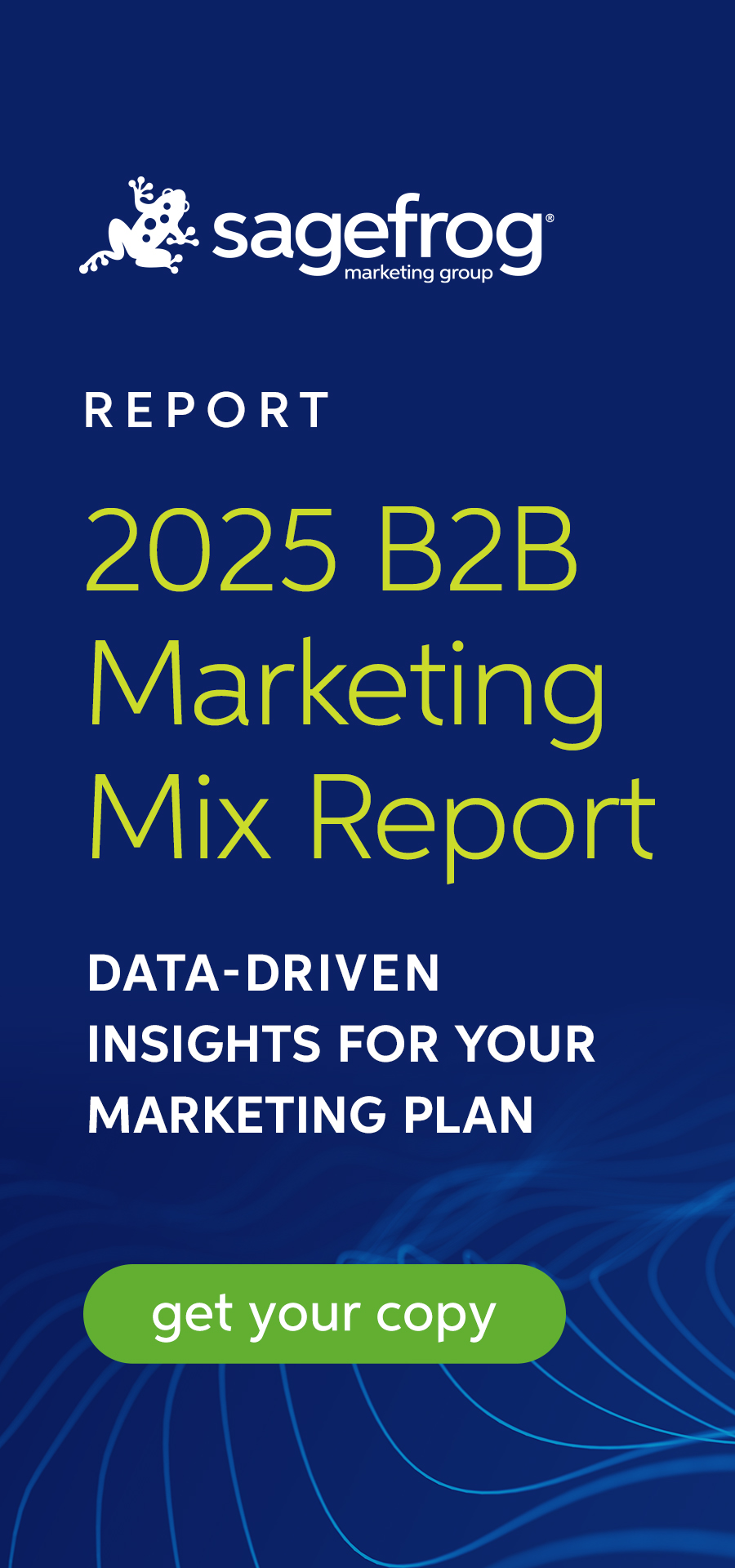With artificial intelligence (AI) and automation reshaping how we work, you might wonder if strategies like B2B content marketing are still worth the effort. Spoiler alert: they are. While AI has revolutionized how we create, distribute, and measure content, the core principles of content marketing—building trust, educating audiences, and fostering meaningful relationships—are more relevant than ever. For B2B companies, content marketing remains the backbone of effective communication, connecting with decision-makers, addressing complex challenges, and driving sustainable growth. Leveraging AI to refine and enhance your B2B content marketing strategies ensures they deliver the maximum impact.
What Is B2B Content Marketing?
B2B content marketing is the practice of crafting and sharing relevant, high-value content to attract and retain business clients. Unlike B2C marketing, which targets individual consumers, B2B content marketing focuses on fostering relationships between businesses and positioning your organization as a trusted partner in addressing their challenges. Through thought-provoking articles, educational tools, and actionable insights, content marketing builds trust and credibility while driving tangible business results.
B2B Content Marketing & AI
AI has brought a wave of innovation to B2B content marketing. AI-powered tools help streamline content creation, enhance personalization, and provide deep analytics to inform strategy. From automating keyword research to crafting tailored email campaigns, AI ensures efficiency and precision. However, its limitations become apparent in areas requiring emotional intelligence and nuanced storytelling. By combining the strengths of AI with human creativity, businesses can achieve the perfect balance—efficient processes paired with authentic, engaging content that resonates with audiences.
Why Content Marketing Is Important for B2B
Content marketing remains a cornerstone of B2B strategies for good reason. It builds trust and positions your company as a thought leader by offering valuable, well-researched insights. This trust translates into stronger relationships with prospects and clients, fostering long-term partnerships. Additionally, content marketing is an effective lead-generation tool, attracting decision-makers actively searching for solutions. Compared to traditional advertising, content marketing is cost-effective and provides enduring value, helping your business stay relevant in a competitive landscape. AI can enhance this process by offering tools to analyze audience behavior, optimize messaging, and ensure content is delivered to the right people at the right time.
AI Elevates B2B Content Marketing, but Can’t Replace Humanity
AI-powered tools undoubtedly make creating and managing content simpler and more efficient. But here’s the catch: AI isn’t a magic wand. It struggles with the human side of storytelling—understanding emotions, crafting nuanced messages, and knowing what makes people care. That’s where human creativity comes in. By blending AI’s efficiency with human authenticity, businesses can create content that’s both strategic and emotionally resonant.
The B2B Content Marketing Funnel
To effectively guide potential clients, content should align with the stages of the B2B content marketing funnel, often referred to as the buyer’s journey. At every stage of the buyer’s journey, AI-powered tools like chatbots, content recommendation engines, and predictive analytics ensure personalized and timely engagement, helping move prospects through the funnel more efficiently.
- Awareness: At this stage, the focus is on attracting attention and educating potential customers. Content types like blogs, infographics, and social media posts are particularly effective.
- Consideration: At this stage, prospects evaluate your solutions against competitors. Content like case studies, whitepapers, and webinars can help position your company as the best choice.
- Decision: To encourage a final decision, use content like testimonials, product videos, and detailed pricing guides to address any lingering concerns.
Aligning your content with each stage of the funnel ensures relevance and maximizes the chances of conversion. Even after conversion, fostering advocacy and nurturing relationships are key to long-term growth.
B2B Content Marketing Types
Effective B2B content marketing involves diverse content types for different parts of the funnel. While any content type can be used across multiple stages of the buyer’s journey, these placements reflect where they typically have the most impact.
Blogs
Blogs are informative articles published on your website that address industry topics, pain points, or solutions. They are commonly used to attract and educate potential leads during the awareness stage.
Infographics
Infographics are eye-catching visuals that simplify complex information. They are great for sharing on social media, driving engagement, generating interest, and spreading awareness.
Social Media
Social media posts on platforms like LinkedIn, Twitter, and Instagram engage audiences and drive traffic to deeper resources during the awareness stage. AI tools enhance impact by scheduling posts, analyzing performance, and identifying trends for maximum impact.
Newsletters
Newsletters are regular email updates that share news, tips, and insights with subscribers. They are great for sharing important information during the awareness stage and valuable for nurturing leads during the consideration stage.
Thought Leadership
Thought leadership content positions your company or executives as industry innovators. It’s great during the awareness and consideration stages, as it can attract attention through interest and help to build authority and trust.
E-books
E-books are digital books offering comprehensive knowledge on a subject, typically gated in exchange for contact information. They are often used to generate leads and demonstrate expertise during the awareness and consideration stages.
Whitepapers
Whitepapers are in-depth reports or guides offering expert insights into specific industry challenges. They are ideal for the consideration stage to establish authority and provide detailed problem-solving information.
Webinars
Webinars are live or recorded presentations that delve into industry topics or demonstrate solutions. They are best utilized in the consideration stage to engage and educate an audience in real-time.
Case Studies
Case studies provide real-world examples of how your company helped a client achieve specific results. They help build credibility and trust in the consideration stage and convert prospects in the decision stage.
Client Testimonials
Client testimonials consist of long or short stories from satisfied clients highlighting their positive experiences. They often prove helpful during the decision stage to reinforce trust and persuade prospects.
Videos
Videos are dynamic content that visually communicates ideas or solutions and works across all funnel stages, especially in awareness and decision-making. AI tools enhance videos by automating editing, suggesting captions, and generating ideas from trending topics.
Chatbots
Chatbots are AI-powered tools that provide real-time, personalized responses to customer inquiries, ensuring seamless engagement. They are helpful throughout all stages of the buyer’s journey, but especially for answering questions in the decision stage.
Each type of content plays a strategic role, contributing to a cohesive ecosystem that nurtures leads and drives results.
Building a Winning B2B Content Marketing Strategy
To develop an effective strategy, you must first understand your audience’s pain points and decision-making process. Create a content calendar to ensure consistent delivery and incorporate AI tools to automate repetitive tasks like content tagging, keyword research, and performance tracking, allowing marketers to focus on creativity and strategy. However, always review AI-generated content through a human lens to maintain authenticity and quality. Track KPIs like engagement, conversions, and traffic to refine your approach continuously based on performance insights. Finally, repurpose content to optimize its value.
B2B Content Marketing Tactics
To get the most out of your B2B content marketing efforts, consider these essential tactics:
- SEO Optimization: Ensure content ranks highly in search engines to attract organic traffic.
- Personalization: Use audience insights to tailor content for different personas.
- Repurposing Content: Adapt existing assets like blogs into new formats, such as infographics or videos.
- Collaboration: Partner with industry influencers or clients for co-branded content that amplifies your reach.
- Account-Based Marketing (ABM): Create highly targeted content for specific high-value accounts.
By aligning your B2B content marketing with this cycle and implementing these tactics, you’ll create an impactful, efficient, and adaptable strategic approach to evolving audience needs.
Best Practices for B2B Content Marketing
To maximize the effectiveness of your content, focus on these best practices:
- Focus on Quality Over Quantity: High-quality, well-researched content builds trust and authority.
- Be Consistent: Regular content publication keeps your audience engaged.
- Track Performance: Use data to identify what’s working and refine your strategy.
- Personalize Content: Tailor your messaging to address the unique needs of your audience.
- Balance AI and Authenticity: Leverage AI for efficiency but keep the human element front and center.
By adhering to these practices, your content can stay relevant and impactful—even as the marketing landscape evolves.
B2B Content Marketing Still Matters
Even in the age of AI, content marketing remains one of the most effective ways to connect, engage, and grow. By combining cutting-edge tools with creative strategies, businesses can deliver content that truly resonates.
Looking to elevate your content game?
Contact our team today to learn how Sagefrog can create and implement a content marketing strategy that delivers measurable results for your business.



